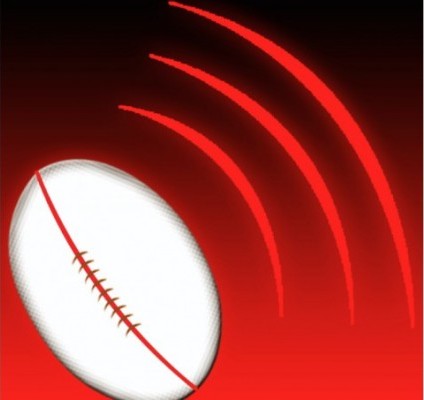USA Rugby Pushes Sports Psychology
USA Rugby Pushes Sports Psychology
What arguably makes the best athletes isn’t just the physical pain the players can endure or how fast or strong they are. It’s a combination of the physicality and mental toughness, which is what Sport and Exercise Psychologist Katie Wurst is making people more aware of.
Wurst, along with Sports Psychologist Julie Sutcliffe, has been working with USA Rugby to instill this level of mental toughness into its elite athletes to take the USA teams to the next level of competition.
“We really focus on the holistic approach to sports performance training,” Wurst said. “The mental side of the game not only applies to your performance on the field but also in life. It’s about how you’re able to prepare yourself adequately and how to build consistent training habits to perform well.”
USA Rugby isn’t the only group that has adopted sports psychology into its training program. USA Olympic teams have also realized the importance of mental toughness when it comes to an athlete’s performance.
Sports Psychology Consultant, Dr. Nicole Detling said, “A lot of the Olympic athletes and elite level athletes I work with will talk about how at the end of the day, everyone at the level really has a similar amount of physical skills, but the person at the top of the podium that day is the one that was the most mentally tough.”
For Wurst, an athlete’s performance contains many mental factors. However, she does believe that mentally training is just as important as physically training. With every missed tackle, knock-on, or forward pass, an athlete has to evaluate the capacity for mental toughness that still allows that athlete to compete at the level needed.
“The way that people train physically, which is looking at things like running sprints, getting in the gym, even passing a rugby ball, everybody has a certain routine and ways that they can plan and train for that,” Wurst said. “There are different ways and tools you can use to train your mental toughness.”
For example, Wurst spoke of an athlete’s ability to perform under pressure. That stomach churning feeling an athlete gets before a match is automatically associated with nervousness. However, the physiological reactions, like sweaty palms, can be redirected and associated with feelings of excitability. Sports psychology helps athletes overcome that nervousness and has them think about how hard the athlete worked to earn that feeling.
“Pressure is a privilege,” Wurst said.
Visualization, self-talk, coachability, emotional control, and injury recovery are other forms of mental toughness training. For many players, the identities are centered on being an athlete. In times of injury, sports psychology helps those athletes refocus their energy on mental training if they aren’t able to train physically.
“Great athletes make great comebacks, because it’s about what they do with the time while they are injured,” Wurst said.
I sat down with Wurst at the NASC in Florida to talk about approaches that would help me as an athlete. I was hooking for the Collegiate All Americans, a position I’d never played before, and I wasn’t doing as well as I knew I could. Wurst had me run through my thought process in a lineout which was, “Flick your wrist, follow through, throw straight, and don’t mess up.”
She pointed at that leaving a message to myself of “Don’t mess up” would almost ensure that I would, because at that point, I wasn’t focusing on the role I was playing for my team, but instead giving into the pressure I felt in a negative way.
Many athletes do this. Athletes are critical on themselves so they can constantly push themselves to get better. However, sports psychology trains the athletes to do the training in a positive way to benefit their careers and help them get to the next level of game play.
Video below on athletic mindset. If you don't see the embedded video, please refresh the page:










